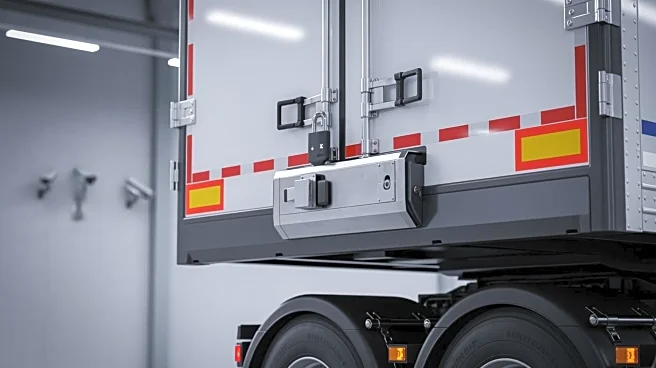What's Happening?
The trucking industry is facing a significant challenge with the rise in cargo theft, which has surged by 27% in 2024 according to Verisk CargoNet. The National Insurance Crime Bureau anticipates a further
22% increase in 2025. This rise is attributed to the profitability of such crimes, the use of advanced technology, and geopolitical tensions. Chris Spear, president and CEO of the American Trucking Associations, highlighted that logistics service providers are experiencing nearly $2 million in annual cargo theft losses. This issue not only results in the loss of goods but also disrupts deliveries, increases insurance rates, and erodes trust in the supply chain, ultimately leading to higher consumer prices. New tactics in cargo theft include the use of social engineering and technology to manipulate Department of Transportation (DOT) numbers and bills of lading, making it difficult to track stolen goods.
Why It's Important?
The evolving tactics in cargo theft present a significant threat to the trucking industry, impacting operational costs and consumer prices. As theft becomes more sophisticated, the industry faces increased insurance premiums and operational disruptions. This situation underscores the need for enhanced security measures and technological solutions to mitigate theft risks. The financial burden of theft is not limited to the loss of goods but extends to increased insurance costs and potential reputational damage for logistics companies. Consumers ultimately bear the cost through higher prices, highlighting the broader economic impact of cargo theft.
What's Next?
Trucking companies are encouraged to adopt new, cost-effective technologies to track high-value cargo and reduce theft incidents. Industry stakeholders may push for stronger regulatory measures and collaboration with law enforcement to combat cargo theft. As the industry adapts to these challenges, there may be increased investment in security technologies and training to prevent theft. The effectiveness of these measures will be crucial in determining the future stability and cost structure of the trucking industry.
Beyond the Headlines
The rise in cargo theft also raises ethical and legal concerns, particularly regarding the manipulation of official documents and the use of social engineering tactics. These practices not only challenge the integrity of the supply chain but also highlight vulnerabilities in regulatory oversight. The trucking industry may need to advocate for stricter penalties and more robust legal frameworks to deter such criminal activities.








